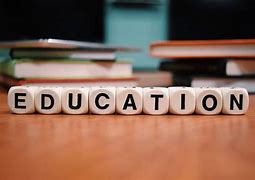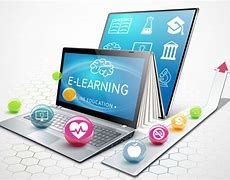Education and e-learning
Education
Education refers to the process of acquiring knowledge,
skills, values, beliefs, and habits through various methods such as teaching,
training, research, or practical experience. It involves a structured system of
learning, typically provided by educational institutions such as schools,
colleges, and universities, and includes formal instruction as well as informal
learning that occurs through experience or observation. Education is a lifelong
process that enables individuals to understand themselves and the world around
them, develop critical thinking and problem-solving skills, and prepare for
various roles and responsibilities in society.
Education encompasses a wide range of subjects, including
academic disciplines such as math, science, literature, and history, as well as
practical skills such as cooking, carpentry, or computer programming. It is
often viewed as a means of socialization, preparing individuals to become
responsible citizens and productive members of society. Education also serves
as a means of personal development, helping individuals to cultivate their
talents and interests, and pursue their goals and aspirations.
Education can take many forms, ranging from formal education,
which involves structured programs of study in schools and universities, to
informal education, which occurs through self-directed learning,
apprenticeships, and on-the-job training. Education can also be delivered
through a variety of methods, including classroom instruction, online learning,
experiential learning, and distance education.
Education is considered a fundamental human right and is
crucial for economic growth and social development. It plays a key role in
reducing poverty, promoting gender equality, improving health outcomes, and
fostering peaceful and inclusive societies. As such, governments, international
organizations, and civil society groups around the world are working to ensure
that education is accessible, affordable, and of high quality for all.
Education is also essential for personal and professional
growth. It provides individuals with the knowledge and skills necessary to
pursue careers and attain financial stability, as well as to participate
actively in civic life and make informed decisions. Education helps individuals
develop critical thinking and problem-solving skills, as well as creativity and
innovation, which are essential for success in the modern world. Moreover,
education is an important tool for personal empowerment, helping individuals to
overcome obstacles, challenge stereotypes, and realize their full potential.
Education has also been shown to have a significant impact on
global development. It is a key factor in reducing poverty and promoting
economic growth, as educated individuals are better equipped to secure
higher-paying jobs and contribute to the economy. Education is also crucial for
achieving sustainable development goals, such as reducing inequality and
ensuring access to clean water and sanitation.
Despite the many benefits of education, there are still many
challenges facing the education system around the world. These include issues
of access and equity, quality, and relevance, particularly in low-income
countries and marginalized communities. However, there are ongoing efforts to
address these challenges and to ensure that education is a priority for
governments, organizations, and individuals worldwide.
Education is also closely tied to innovation and progress. It
is through education that new ideas are developed, tested, and shared, leading
to advances in technology, medicine, and other fields. Education also provides
individuals with the skills and knowledge necessary to address pressing global
challenges such as climate change, poverty, and social injustice.
In addition to formal education, there is also a growing
emphasis on lifelong learning. In today's rapidly changing world, it is
essential that individuals continue to learn and adapt throughout their lives
in order to remain competitive in the job market and to contribute to their
communities. This includes both formal and informal learning opportunities,
such as online courses, professional development programs, and community-based
learning initiatives.
Finally, education is also closely linked to social and
cultural values. It is through education that individuals learn about their
cultural heritage, as well as the values and beliefs of other cultures.
Education promotes respect for diversity and helps to build more inclusive and
tolerant societies. By providing individuals with the knowledge and skills
necessary to understand and engage with the world around them, education plays
a critical role in shaping the future of our societies and our world.
Another important aspect of education is its impact on
individual well-being and happiness. Education has been linked to improved
mental health, higher self-esteem, and a greater sense of purpose and meaning
in life. It can also help individuals develop stronger social connections and
relationships, leading to greater social support and a stronger sense of
community.
Moreover, education can help individuals to become more
engaged and active citizens. By providing individuals with the knowledge and
skills necessary to understand and participate in civic life, education helps
to promote democratic values and strengthen civil society. This includes
developing critical thinking and analytical skills, as well as an understanding
of government and public policy.
Lastly, education is a powerful tool for promoting gender
equality and empowering women and girls. Education has been shown to have a
transformative impact on the lives of women and girls, improving their health,
increasing their earning potential, and reducing rates of child marriage and
other harmful practices. By promoting education for all, particularly for women
and girls, we can help to create a more equitable and just world.
In summary, education is a complex and multifaceted concept
with far-reaching implications for individuals, communities, and society as a
whole. It is essential for personal and professional development, global
development, innovation and progress, and individual well-being and happiness.
Through ongoing efforts to improve access, equity, quality, and relevance, we
can ensure that education continues to play a central role in shaping the future
of our world.
One of the most significant trends in education in recent
years has been the rise of technology-enabled learning. Advances in technology,
including the growth of the internet, mobile devices, and artificial
intelligence, have transformed the way we learn, making education more
accessible, flexible, and personalized.
Online learning platforms, such as MOOCs (massive open online
courses), have made it possible for millions of people around the world to
access high-quality education at little or no cost. These platforms offer a
wide range of courses and programs, from introductory courses to advanced
degrees, and allow learners to study at their own pace and on their own
schedule.
Technology has also enabled personalized learning, which
tailors educational content and delivery to the individual needs and
preferences of learners. Adaptive learning platforms use algorithms to analyze
learner data and adjust content and instruction to optimize learning outcomes.
This approach has been shown to improve learner engagement, retention, and
achievement.
In addition to these technological advances, there has also
been a growing recognition of the importance of social-emotional learning (SEL)
in education. SEL refers to the development of skills such as empathy,
self-awareness, and relationship-building, which are essential for success in
school and in life. Educators are increasingly integrating SEL into the
curriculum and developing programs and resources to support learners' social
and emotional development.
Finally, there is a growing emphasis on the role of education
in addressing global challenges such as climate change, social inequality, and
conflict resolution. Education is seen as a critical tool for building
awareness and understanding of these issues and for developing the knowledge
and skills necessary to address them effectively.
Overall, education continues to evolve and adapt to the
changing needs of learners and society. Through ongoing innovation, research,
and collaboration, we can continue to build a more equitable, sustainable, and
prosperous world through education.
E-Learning
E-learning refers to the delivery of educational content and
instruction through digital technologies, such as the internet, computers,
mobile devices, and multimedia. It involves the use of digital resources, such
as online courses, video lectures, interactive simulations, and digital
textbooks, to facilitate learning anytime, anywhere.
E-learning can be delivered in various formats, including
synchronous and asynchronous learning. Synchronous learning involves real-time
interaction between learners and instructors, often through video conferencing
or chat tools. Asynchronous learning, on the other hand, allows learners to
access and complete educational content on their own schedule, with feedback
and support provided by instructors through email or other digital channels.
E-learning has become increasingly popular in recent years,
particularly in the context of the COVID-19 pandemic, which has led to the
widespread adoption of remote and online learning. E-learning has several
advantages over traditional classroom-based learning, including greater
flexibility, accessibility, and cost-effectiveness. It can also be tailored to
the individual needs and preferences of learners, and can provide immediate
feedback and assessment.
However, e-learning also presents some challenges, including
issues related to digital literacy, motivation, and engagement. It may also
require significant investment in technology and infrastructure, particularly
in low-income countries and marginalized communities. Nonetheless, e-learning
is seen as an important tool for expanding access to education, improving
educational outcomes, and addressing global challenges such as the digital
divide and the skills gap.
E-learning has revolutionized education by breaking down
barriers to access and providing new opportunities for learning. Here are some
additional details:
Access: E-learning has made education more accessible to
people who might otherwise not have access to traditional classroom-based
learning. E-learning can be accessed from anywhere in the world with an
internet connection, allowing learners to study and learn at their own pace,
from their own homes, or from anywhere they choose.
Flexibility: E-learning provides learners with greater
flexibility in terms of when and where they learn. Learners can access
educational content at any time, from any location, and can complete coursework
at their own pace. This is particularly beneficial for learners who have other
commitments, such as work or family obligations.
Cost-effectiveness: E-learning can be a more cost-effective
alternative to traditional classroom-based learning, as it eliminates the need
for physical classroom space, textbooks, and other materials. E-learning can
also be less expensive for learners, as they do not need to travel to a
physical location to attend classes.
Personalization: E-learning can be tailored to the individual
needs and preferences of learners, allowing for a more personalized learning
experience. E-learning platforms can use data analytics and artificial
intelligence to personalize content, instruction, and feedback, based on the
individual learning needs and preferences of learners.
Global reach: E-learning can help to bridge the gap between
countries and cultures by providing a common platform for learning. This has
the potential to promote cross-cultural understanding, collaboration, and
innovation, and to support the development of a global community of learners.
Skill development: E-learning can provide learners with a
wide range of skills, including digital literacy, critical thinking,
problem-solving, and communication. These skills are essential for success in
the 21st century workforce and can help to address the skills gap that exists
in many industries.
In summary, e-learning is a powerful tool for expanding
access to education, improving educational outcomes, and addressing global
challenges. By leveraging the latest technologies and learning methods, we can
create a more equitable, sustainable, and prosperous world through education.
Interactivity: E-learning can be highly interactive,
providing learners with opportunities to engage with content in new and
engaging ways. E-learning platforms can include interactive elements such as
quizzes, games, simulations, and virtual reality experiences, which can enhance
learner engagement and retention.
Collaborative learning: E-learning can also facilitate
collaborative learning, allowing learners to work together on projects,
assignments, and discussions in virtual environments. This can promote
teamwork, communication, and critical thinking skills, and can help to foster a
sense of community and connection among learners.
Ongoing learning: E-learning can support ongoing learning and
professional development, allowing learners to update their skills and
knowledge throughout their careers. This can be particularly beneficial in
rapidly changing fields, where workers need to keep up with new technologies
and trends to remain competitive.
Assessment and feedback: E-learning platforms can provide
immediate feedback and assessment, allowing learners to track their progress
and receive feedback on their performance. This can help to motivate learners
and support their ongoing development.
Access to experts: E-learning can provide learners with
access to experts and thought leaders in their field, who may not be accessible
through traditional classroom-based learning. E-learning platforms can include
guest lectures, webinars, and other resources that can connect learners with
experts and provide them with insights and perspectives they may not otherwise
have access to.
Sustainability: E-learning can be a more sustainable
alternative to traditional classroom-based learning, as it eliminates the need
for travel and reduces the environmental impact associated with physical
classrooms and materials. This can help to reduce the carbon footprint of
education and support the development of more sustainable models of learning.
Overall, e-learning has the potential to transform education
in many ways, providing learners with greater access, flexibility,
personalization, and engagement. As technology continues to evolve and improve,
we can expect to see even more innovative and effective e-learning solutions in
the years ahead.
Adaptable to Different Learning Styles: E-learning platforms
can be designed to accommodate different learning styles, including visual,
auditory, and kinesthetic learners. For example, video-based content may be
more effective for visual learners, while audio-based content may be more
effective for auditory learners. Interactive content and simulations may be
more effective for kinesthetic learners.
Scalability: E-learning can be more scalable than traditional
classroom-based learning, as it can accommodate large numbers of learners
without requiring additional physical space or resources. This can be
particularly important for organizations and institutions that need to train
large numbers of people.
Customization: E-learning can be customized to meet the
specific needs and goals of different organizations and learners. For example,
e-learning platforms can be tailored to meet the training needs of a particular
industry or organization, or to address the unique learning needs of individual
learners.
Mobile Learning: E-learning can be delivered on mobile
devices, allowing learners to access educational content on-the-go. This can be
particularly beneficial for learners who are traveling or who have busy
schedules.
Accessible Learning: E-learning can be designed to be
accessible to learners with disabilities, including those who are visually
impaired or hearing impaired. This can help to ensure that all learners have
equal access to educational opportunities.
Data-Driven Insights: E-learning platforms can provide
data-driven insights into learner performance, engagement, and satisfaction,
allowing educators and trainers to make data-informed decisions about how to
improve the effectiveness of their programs.
In summary, e-learning is a versatile and effective tool for
delivering education and training in a wide range of contexts. By leveraging
the latest technologies and learning methods, we can create more engaging,
effective, and accessible learning experiences that support the needs and goals
of learners and organizations alike.














No comments: